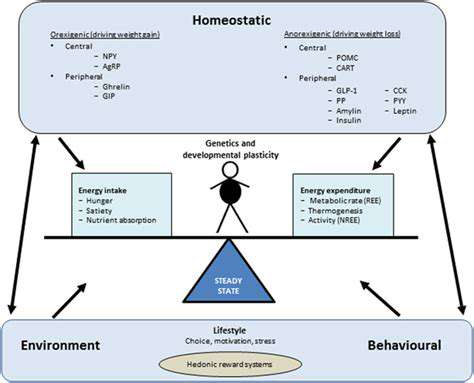High Protein Breakfasts: Fuel Your Morning
Jun 15, 2025 / btwgardenmachine/

Choosing the Right Protein Sources for Your Breakfast
Understanding Your Protein Needs
Protein plays a critical role in tissue repair and immune function, but many people underestimate their daily requirements. Your ideal protein intake isn't one-size-fits-all - it varies based on your workout routine, body composition goals, and even stress levels. While nutritionists can offer tailored advice, a good starting point is 0.8 grams per kilogram of body weight for sedentary adults, with active individuals needing significantly more.
Morning protein intake matters more than most realize. Starting your day with adequate protein helps regulate appetite hormones, preventing mid-morning energy crashes and excessive snacking. This metabolic advantage makes breakfast the ideal meal to prioritize quality protein sources.
Eggs: Nature's Perfect Protein Package
No breakfast protein compares to eggs in terms of biological value - they set the gold standard at 100%. Each egg delivers about 6 grams of complete protein containing all nine essential amino acids in ideal proportions for human absorption. Beyond protein, they're rich in choline for brain health and lutein for vision protection.
Their culinary flexibility shines in breakfast applications. From fluffy French omelets to crustless quiches packed with vegetables, eggs adapt to any flavor profile while delivering substantial nutrition. For maximum benefits, pair them with vitamin C-rich foods to enhance iron absorption from the yolks.
Plant-Based Alternatives: Beyond Basic Substitutes
The dairy-free protein market has exploded with innovative options. Soy milk remains the protein leader among plant milks (7g per cup), while newer pea protein blends match dairy's protein content gram-for-gram. Fortified nutritional yeast offers a cheesy flavor with 8g of protein per serving, perfect for savory breakfast bowls.
Texture innovations have transformed plant-based yogurts. Look for options with live cultures and at least 10g of protein per serving. Blend them with nut butters and flaxseeds for a protein-packed parfait that rivals traditional dairy versions in both nutrition and satisfaction.
Animal Proteins: Maximizing Morning Benefits
Lean meats provide the most concentrated protein sources, with turkey breast leading at 26g per 3-ounce serving. Smoked salmon offers a unique combination of 17g protein and anti-inflammatory omega-3s - perfect for protein toast or bagels. For meal prep enthusiasts, batch-cooked chicken sausage patties make for quick, portion-controlled options.
Preparation method matters greatly. Grilling, baking, or poaching preserves protein quality better than frying. Always balance meat proteins with fiber-rich vegetables to slow digestion and prolong satiety.
Ancient Grains: The Overlooked Protein Heroes
Quinoa's 8g protein per cooked cup includes lysine - an amino acid rare in plant foods. Teff flour makes protein-rich pancakes (5g per serving), while amaranth porridge provides 7g protein with a nutty flavor profile. These grains offer complete proteins comparable to animal sources, making them ideal for plant-based diets.
For maximum benefit, soak grains overnight to reduce phytates and improve mineral absorption. Pair with vitamin C sources to enhance iron uptake from these plant proteins.
Seed and Nut Boosts: Small But Mighty
Hemp seeds deliver 10g protein per ounce with optimal omega-3 to omega-6 ratios. Pumpkin seeds offer iron-rich protein (8g/oz), while almond butter provides 7g per tablespoon. Chia seeds form protein-rich puddings when soaked overnight in almond milk - a perfect make-ahead breakfast.
Toasting nuts enhances their flavor and digestibility. Keep portions moderate (1-2 oz) to control calories while still benefiting from their protein, fiber, and healthy fat content. Combine different varieties for broader nutrient coverage.